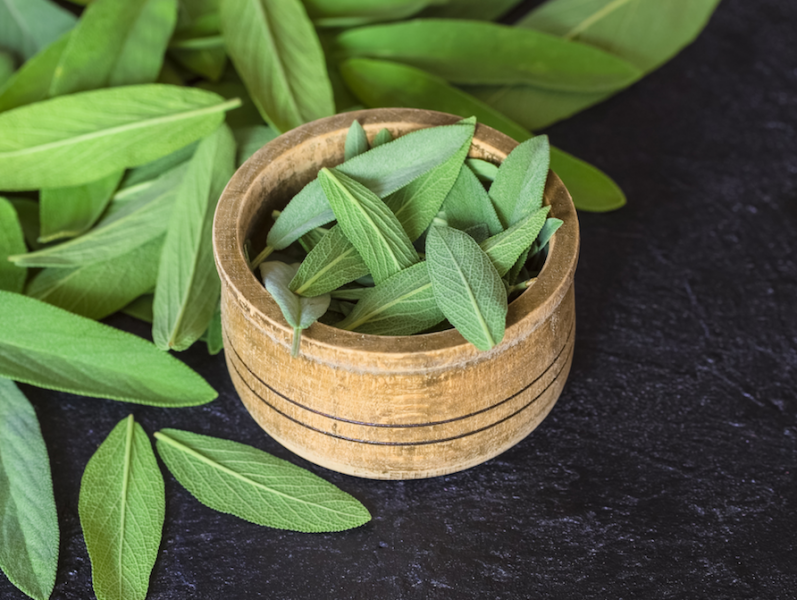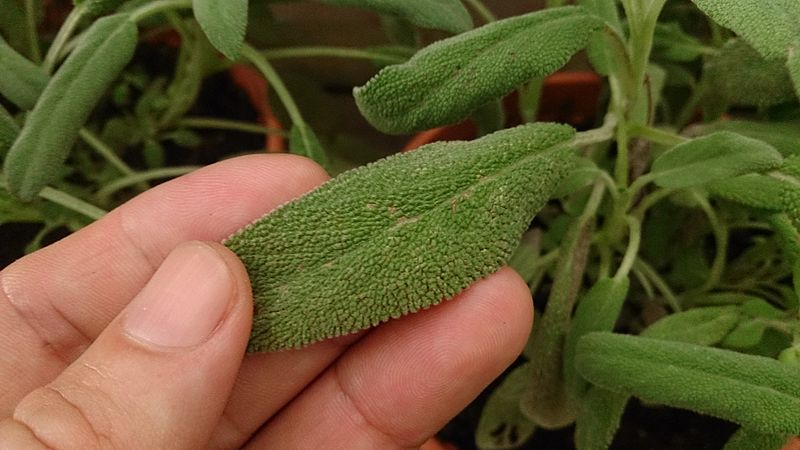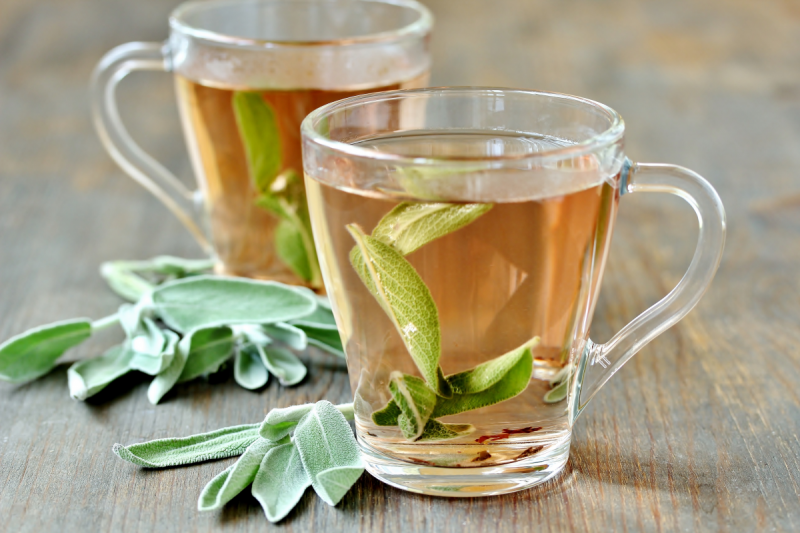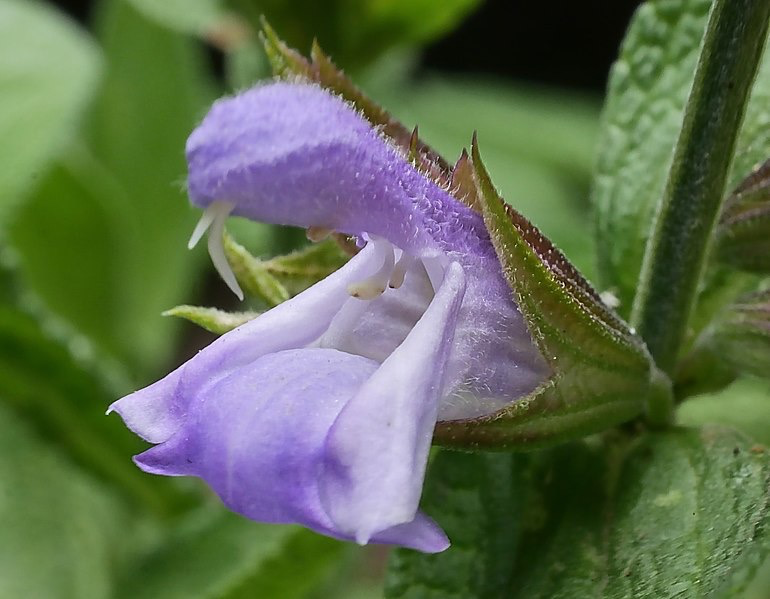 A sage is a person who is distinguished for their wisdom and good judgment. A person becomes sage through reflection and experience. A person who can’t learn from life’s experiences will see the events of their life as ill-fated and undeserved. They will be unable to see the higher purpose in the events of their lives and derive wisdom from their setbacks and defeats.
A sage is a person who is distinguished for their wisdom and good judgment. A person becomes sage through reflection and experience. A person who can’t learn from life’s experiences will see the events of their life as ill-fated and undeserved. They will be unable to see the higher purpose in the events of their lives and derive wisdom from their setbacks and defeats.
The flower essence of sage helps a person to draw wisdom from their life experiences and see life from a higher perspective. If someone needs help with this they might benefit from taking garden sage, Salvia officinalis, as an herb or a flower essence.
Most famous for his book, Think and Grow Rich, Napoleon Hill believed that every adversity contained the seeds for an equal or greater opportunity. People sometimes refer to this as looking for the silver lining. To become sage one has to develop the ability to learn and grow from all of life’s experiences, both positive and negative.
In my experience, people who are unable to do this become increasingly bitter because of the difficulties in their lives. They may also become rigid and dogmatic. And, all too often this is exactly what happens to us as we age. We lose flexibility of mind and body.
Sage and Age
 That’s why I find it interesting that Matthew Wood says sage is a remedy that helps people who have withered, dry skin and withered dry tendons. He suggests their skin takes on an appearance similar to the leaves. In his words, sage is good for “older persons with dryness of the skin, hair, mucosa, tendons; drying up secretions.” He also states that it is good for “mental lethargy, depression, melancholy, poor concentration, [and] loss of memory.”
That’s why I find it interesting that Matthew Wood says sage is a remedy that helps people who have withered, dry skin and withered dry tendons. He suggests their skin takes on an appearance similar to the leaves. In his words, sage is good for “older persons with dryness of the skin, hair, mucosa, tendons; drying up secretions.” He also states that it is good for “mental lethargy, depression, melancholy, poor concentration, [and] loss of memory.”
To me, all this suggests that sage is a great remedy for people who are not aging well. They haven’t learned from life’s experiences, are giving up on life and becoming brittle and inflexible. So, let’s examine a few of the potential benefits of sage that would aid a person in aging gracefully.
Sage and the Brain
We’ll start with the brain. Obviously to be a wise person you have to keep control of your mind. So it should come as no surprise that sage is a helpful herb for protecting the brain and memory. It has anti-inflammatory effects due to a number of chemical compounds. Its volatile oil contains camphor and B-carophyllene, both of which help to reduce inflammation. We now know that B-carohyllene interacts with CB2 receptors in the endocannabinoid system, which mediate inflammatory responses. In the brain, CB2 receptors are activated when the brain is injured to protect against neurotoxicity.
Sage also contains various terpenes, many with antioxidant characteristics, phenolic acids with immune-enhancing and antioxidant effects, and flavonoids. Since inflammation is at the root of all the diseases associated with aging, the regular use of herbs like sage can help to reduce overall levels of inflammation, but in particular, have a positive benefit in reducing inflammation in the brain which may lead to dementia and other neurodegenerative diseases.
Hormones and Sweat
 Alabama herbalist Phyllis Light finds garden sage helpful in hormonal regulation during menopause. She sees it as a valuable aid to help the adrenal glands take over estrogen production and finds it particularly helpful for dryness associated with menopause. One of the problems associated with menopause is hot flashes and night sweats and sage has properties that help to regulate the sweat glands.
Alabama herbalist Phyllis Light finds garden sage helpful in hormonal regulation during menopause. She sees it as a valuable aid to help the adrenal glands take over estrogen production and finds it particularly helpful for dryness associated with menopause. One of the problems associated with menopause is hot flashes and night sweats and sage has properties that help to regulate the sweat glands.
When it comes to sweating, sage has a different action depending on how it is prepared. If you make a hot infusion or tea, you primarily get the volatile oils, which will help promote sweating. So, sage tea can act as a diaphoretic to reduce fevers and relieve colds.
On the other hand, if you make a decoction and drink it when cool, you get more of the astringent principles in sage. That’s also true if you take the capsules. In this case, sage will stop night sweats and excessive perspiration.
Night sweating is often a hot flash that occurs during sleep. It can happen in people who are suffering from what I call adrenal fatigue. Sage appears to help regulate the hypothalamus which controls sweating as well as levels of adrenal and reproductive hormones.
Sage’s effect on the hypothalamus is also connected with its ability to dry up breast milk in nursing mothers. Milk let down is also regulated via the hypothalamus. So, while sage is good for helping a woman during menopause it is contraindicated in nursing mothers.
The Voice and Throat
 Many years ago I learned that sage tea is a very effective remedy for laryngitis. The tea seems to rapidly clear the vocal cords and restore the voice. I’ve observed that laryngitis is often emotionally connected with feeling unable to express one’s self or speak one’s truth. One can’t be sage if one can’t speak, so I find sage helpful for clearing the throat so a person can say what they need to say. If you look closely, the flowers resemble a throat, making this one of sage's herbal signatures.
Many years ago I learned that sage tea is a very effective remedy for laryngitis. The tea seems to rapidly clear the vocal cords and restore the voice. I’ve observed that laryngitis is often emotionally connected with feeling unable to express one’s self or speak one’s truth. One can’t be sage if one can’t speak, so I find sage helpful for clearing the throat so a person can say what they need to say. If you look closely, the flowers resemble a throat, making this one of sage's herbal signatures.
Sage is also a good remedy for canker sores, sore throats and bleeding gums. You can gargle with the tea or use it as a mouthwash. You can also apply it topically to aid in wound healing. It has antibacterial action which helps fight infection.
Sage and Digestion
Sage's mild flavor is valued in cooking. My mom always made sage dressing for Thanksgiving. I loved it then and I still use her recipe when I make stuffing. Sage is also a major seasoning for pork sausages. It’s valuable here for more than just its flavor, it also helps the body digest the fat. It contains bitter principles and an essential oil that mildly stimulates the gallbladder to release more bile.
Which returns us to the subject of wisdom and aging. You have to digest life to gain wisdom from it, just as you have to digest food to derive nourishment from it. Sage helps with both. In fact, the Latin name for sage, Salvia, means to “soothe or heal.” It’s actually the same root as the word salve, a remedy that is put over an injury to soothe it. The French even referred to sage as toute bonne, meaning "all's well."
Developing wisdom comes through reflecting prayerfully on your life experiences and finding the positive benefits in them. Often, what at first seem like only hardship can bring the wisdom that soothes (salves) the troubles of life. If you can become sage as you age you can develop the ability to see life from a higher perspective. From that higher perspective, you may find that even in difficult times all is well with your soul. If you need help finding this perspective, maybe taking a little sage will help.
Steven's Articles
-

-
The Sensible Use of Caffeinated Herbs
Kola nuts, guarana, and yerba mate and other herbs…
-

-
The Health Benefits and Problems with Coffee
This popular caffeinated beverage can be beneficial…
October
-

-
Understanding Caffeine & Cellular Adaptation
Preserving the power of caffeine's buzz and the…
September
-

-
Horseradish
A pungent spice for aiding protein metabolism…
-

-
Banaba or Crepe Myrtle
A beautiful tree from Southeast Asia whose leaves…
August
-

-
Monkeyflowers
Flower essences to help see ourselves more clearly…
-

-
Mariposa Lilies
Strengthening the bond between mother and child…
-

-
The Noble Bay Leaf
A common kitchen herb for aiding digestion and…
-

-
Epimedium: Horny Goat Weed
A circulatory stimulant and kidney yang tonic…
July
-

-
The Medicinal and Nutritional Benefits of Apricots
A nutritious fruit and valuable medicinal seed for coughs
-

-
Dogwoods
Asian dogwood is used to stop excessive discharge,…
June
-

-
Neem: The Village Pharmacy
A popular Ayurvedic remedy for dental and immune…
-

-
Spilanthes: The Toothache Plant
A traditional remedy for teeth and gums, as well…
-

-
Forsythia
An anti-inflammatory, fever-reducing, and infection fighting herb
May
-

-
Buckwheat (Kashi)
A delicious, high protein, gluten-free, gut-healthy food

